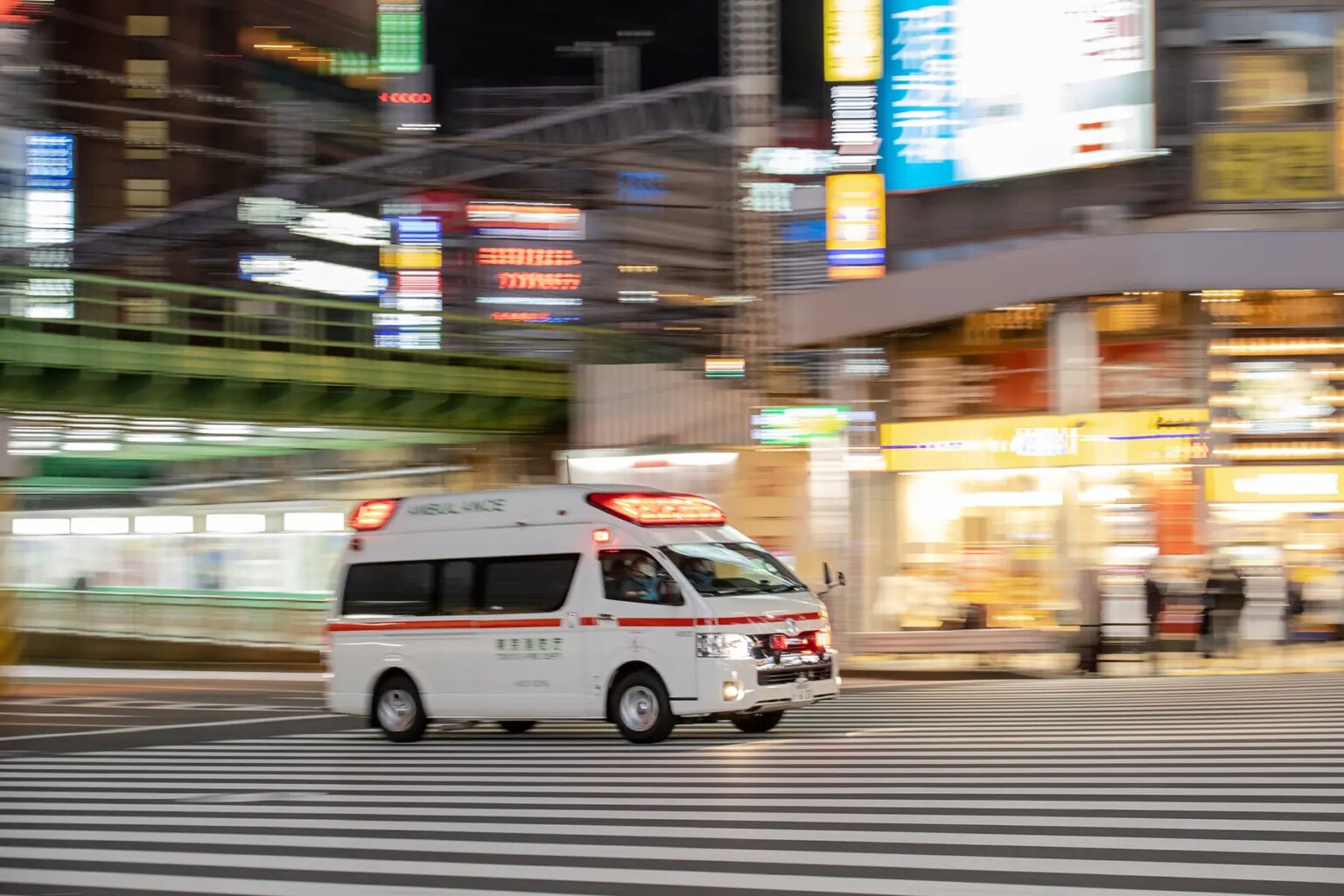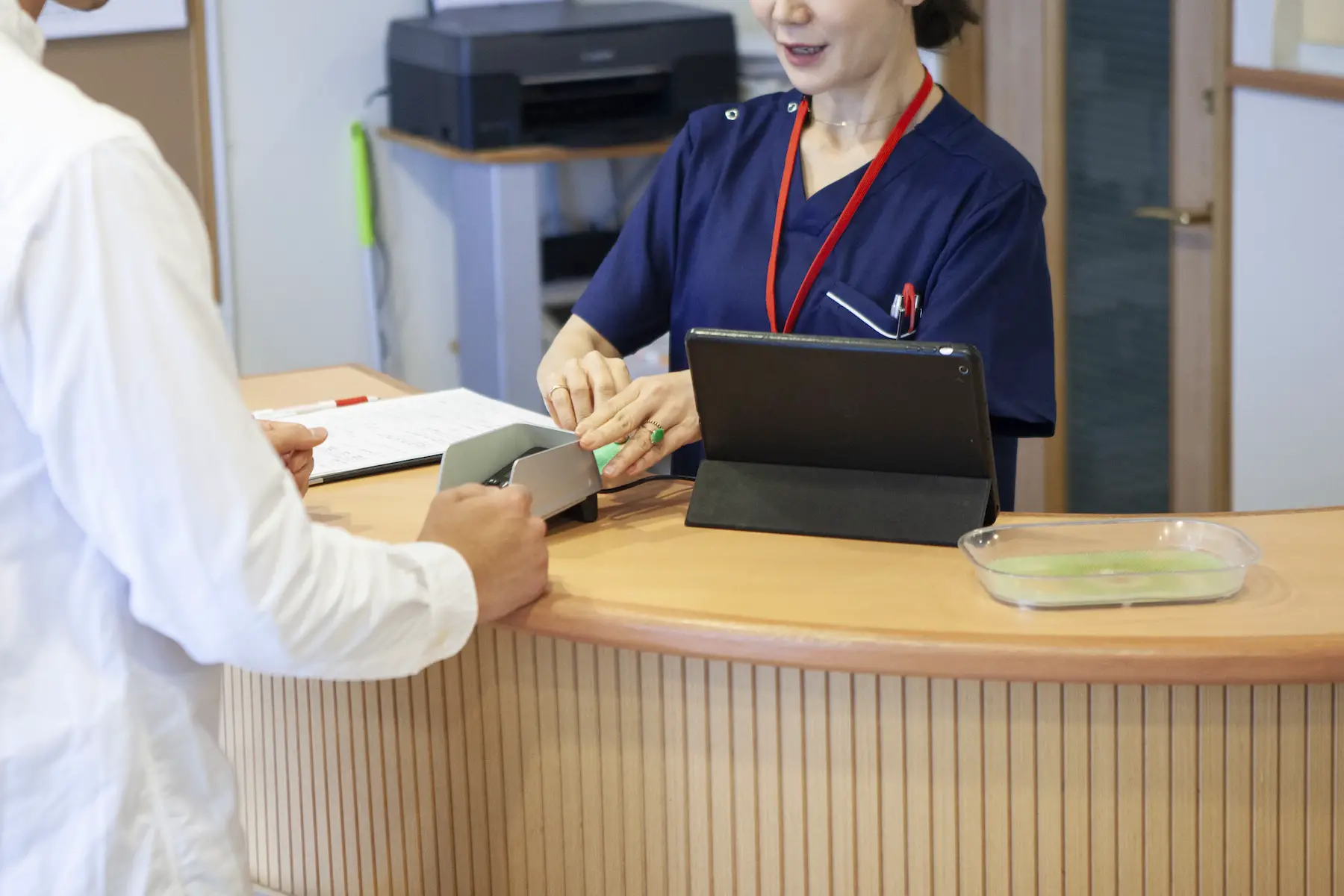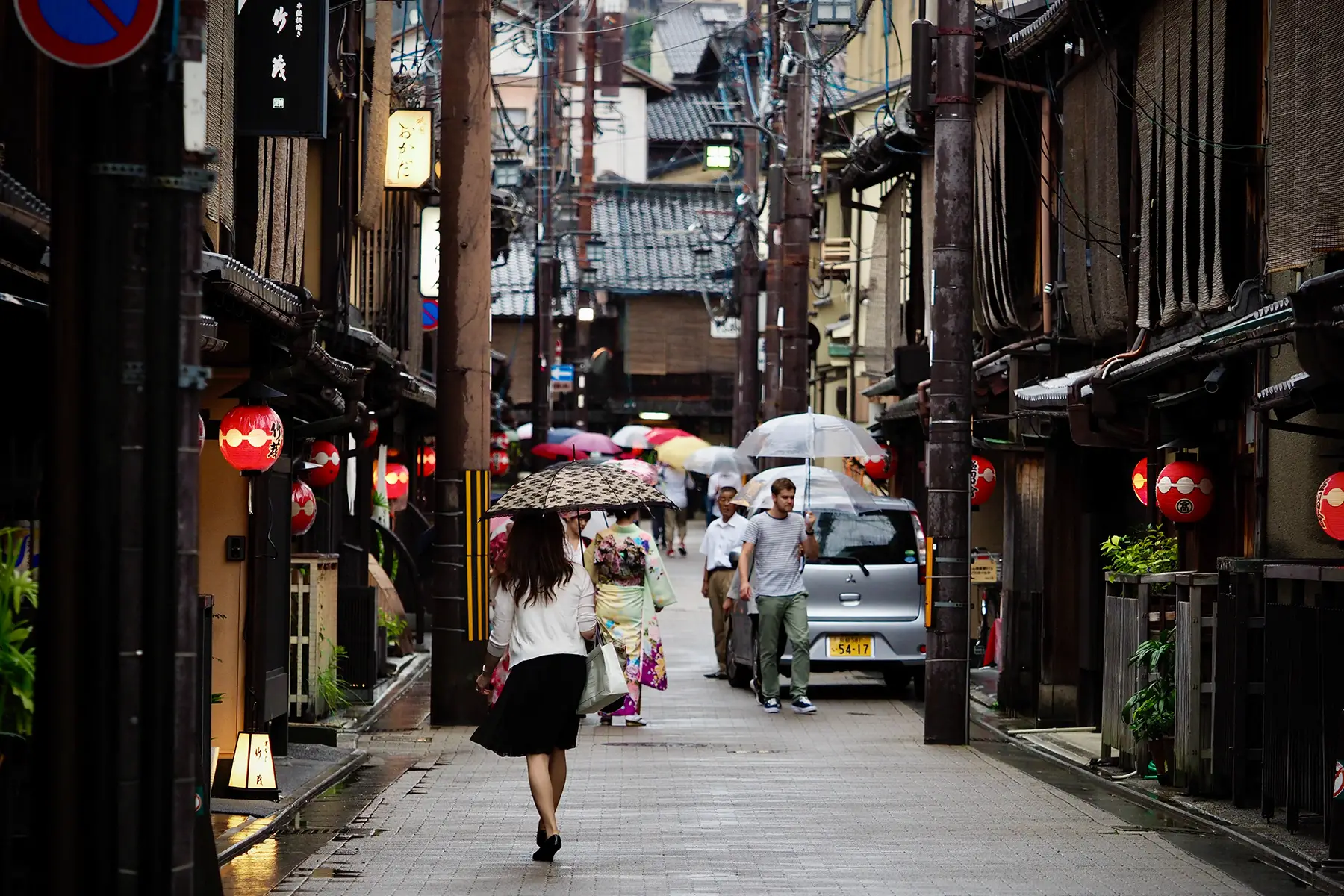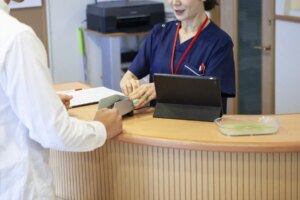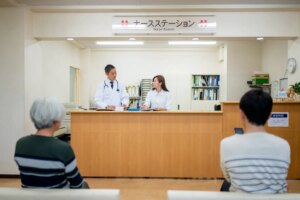Japan is one of the safest countries in the world, boasting very low crime rates. However, the country is prone to natural disasters, such as earthquakes, tsunamis, and volcanic eruptions. So, whether you need the police, fire department, or medical care, the emergency services are there when you need them.
| Emergency service | Number |
| General emergency line | – |
| Ambulance | 119 |
| Fire brigade | 119 |
| Police | 110 |
| Coast guard | 118 |
| Missing Person Search Support | 042-426-9300 |
| Suicide crisis hotline | 0800-300-8355 |
Besides the above, Japan has a number of other emergency helplines you may not be familiar with:
- Main emergency numbers in Japan
- Helplines for domestic and gender-based violence in Japan
- Mental health and substance abuse helplines in Japan
- Emergency number for road and traffic accidents in Japan
- Who to call in a property or housing emergency
- How to contact the Japanese animal services
- Help for foreign nationals in Japan
- What should you do in an emergency in Japan?
- Emergency terms and phrases in Japan
- Useful resources
Cigna Global
Enjoy peace of mind while living in Japan with Cigna Global’s long-term international health insurance plans (12+ months). Get tailored coverage, direct billing with many providers, complex case management, and global care on demand, with access to a network of 1.5+ million doctors, specialists, and therapists.
Main emergency numbers in Japan
If you or someone else is in immediate danger, you can call 110 or 119 from any landline or mobile phone in France. Calling 112 or 991 does not work; instead, call 110 for the police or 119 for ambulance or fire services. The operator will divert you to the required service. If you are deaf or hearing impaired, you can use the Net119 Emergency Call System app for assistance.
You should only use the Japanese emergency number in genuine crises, such as a fire or a serious threat to your health. Using these lines for non-urgent issues causes delays for those who require immediate help.
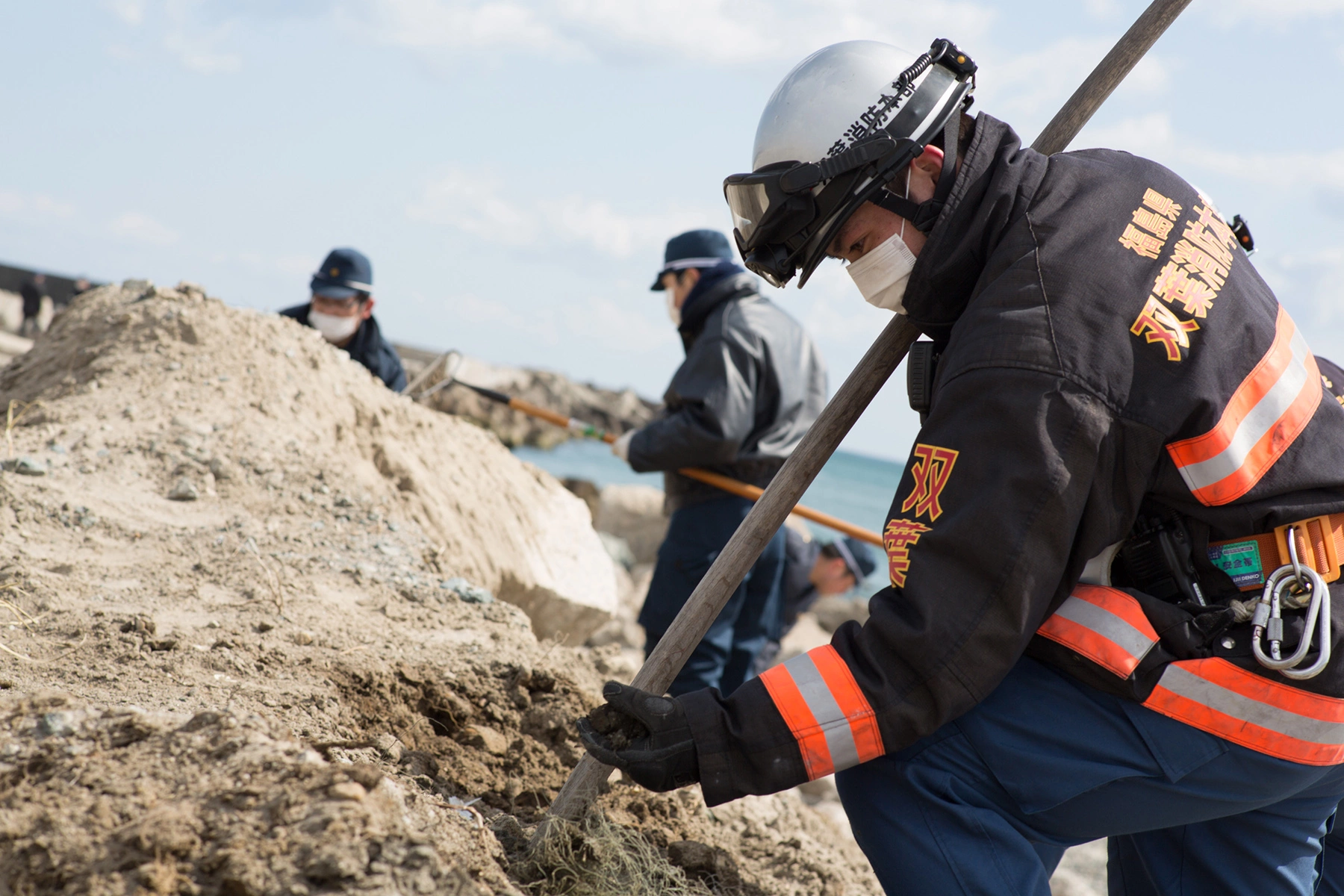
The Ministry of Internal Affairs and Communications (MIC) is responsible for most rescue services in Japan. It manages J-Alert, the nationwide emergency warning system, and oversees the Fire and Disaster Management Agency (FDMA), which coordinates large-scale rescue efforts and supports local responders during disasters. Meanwhile, the Ministry of Defense (MOD) mobilizes the Self-Defense Forces (JSDF) for large-scale disaster relief.
Japanese ambulance and rescue services
In a medical emergency, call 119 for an ambulance. However, given that response times are approximately 10 minutes, it may sometimes be quicker to drive or take a taxi to the nearest hospital. If you are unsure whether to call an ambulance or go to the hospital yourself, you can also contact the emergency telephone consultation center at #7119.
Japan has mandatory health insurance for working residents, so you can access emergency healthcare for free. However, because most insurance plans have a coverage gap, it’s recommended that expats take out additional insurance from a company like:
The following are some other useful numbers to jot down:
- Poison Information Service: 072-727-2499 (Osaka) or 029-852-9999 (Tsukuba)
- HIV/AIDS Hotline: 0720-43-2044 (Osaka) or 03-5259-0256 (Tokyo) – English hours are on Saturdays, from 13:00 to 17:00
- Cancer Support Community: 03-6809-1825 – English-speaking support is available
- Coast Guard: 118
How to reach the fire service in Japan?
The Japanese fire brigade covers regional, prefectural, and municipal fire departments. For example, the Tokyo Fire Department (TFD) is responsible for all 23 city wards and is allegedly the largest in the world.
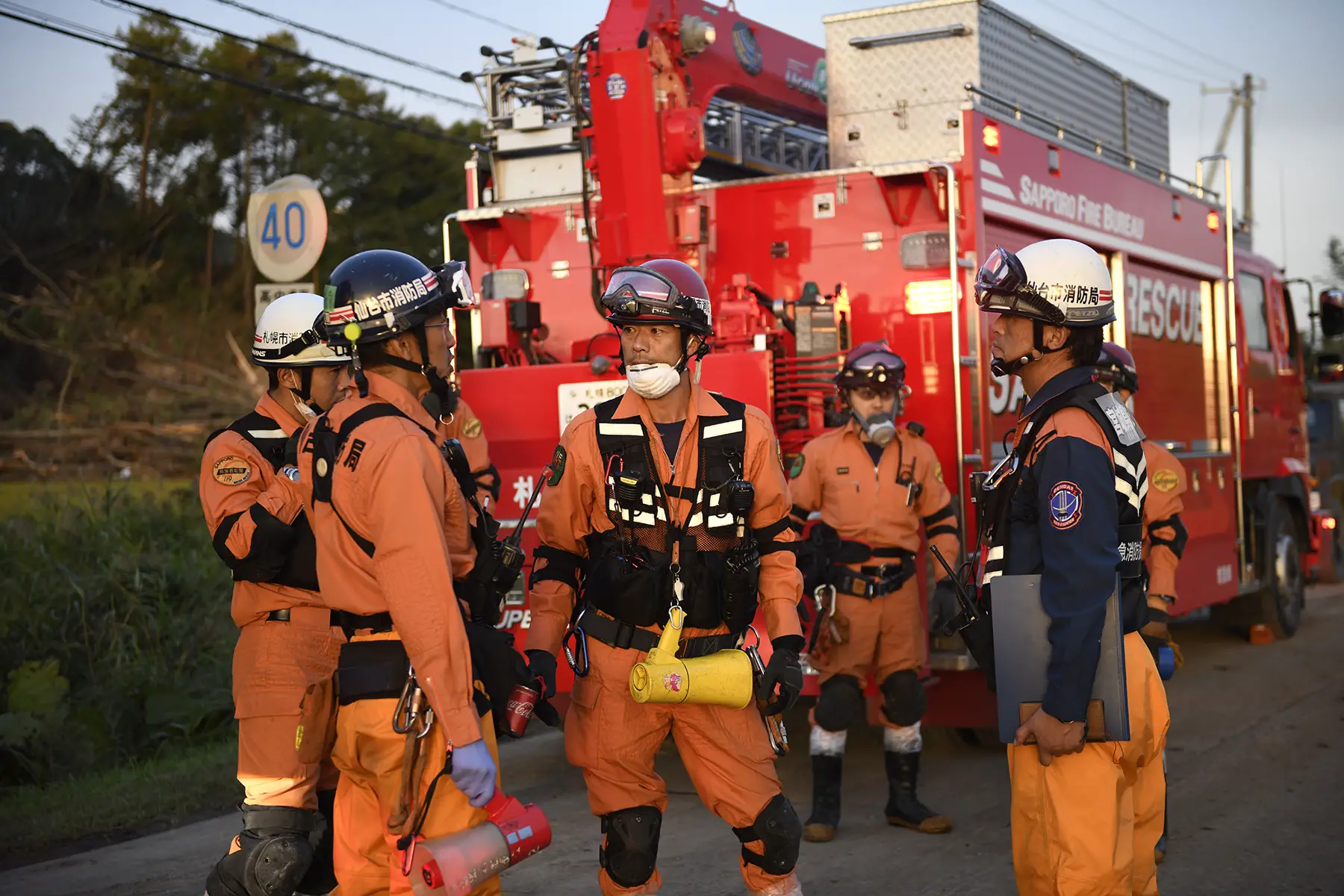
You can contact the firefighters by calling the national number 119; the operators will direct you to the fire station in your area.
Emergency number for the police in Japan
The National Police Agency (NPA – 警察庁) is the backbone of Japan’s law enforcement and emergency response systems. Its various subsidiaries are responsible for public safety and crime prevention, as well as traffic management, parking enforcement, crowd control, and emergency response. The NPA consists of:
- Community Safety Bureau (生活安全局) – for community safety, juveniles, and cybercrime
- Criminal Affairs Bureau (刑事局) – criminal affairs, investigations, organized crime, drugs, and firearms
- Info-Communications Bureau (サイバー警察局) – technology crime
- Security Bureau (警備局) – security planning, foreign intelligence, counterterrorism
- Traffic Bureau (交通局) – traffic planning, enforcement, and licensing
Like the fire services, the Japanese police force is organized into regional bureaus, which oversee 47 prefectural departments, including the Tokyo Metropolitan Police Department.
For urgent help, you can call 110. In non-emergency situations, you should dial #9110.
Helplines for domestic and gender-based violence in Japan
Japan has a number of emergency support lines for victims of violence. For example, you can call the national Human Rights Hotline at 0570-003-110. Alternatively, you can reach out to:
- Women’s Human Rights Hotline: 0570-070-810
- Yorisoi Hotline: 0120-279-338 or 0120-279-226
Help for domestic or sexual abuse in Japan
The national number for Domestic Violence Support is #8891 or #8008. You can also contact:
- ChildLine: 0120-99-7777
- Child Guidance Office’s Child Abuse Hotline: 189
- Child Guidance Office Counseling: 03-3366-4152
- Domestic Abuse Hotline Plus: 0120-279-889
- House in Emergency of Love and Peace (emergency shelter in Tokyo): 03-3368-8855
- #いのちSOS (sexual abuse support): 0120-0-78310
- Tokyo Rape Crisis Center: 81-3-3207-3692
You can find more resources at No Mo Directory Japan. If you know of or witness domestic violence, reach out to the police at 110.
How to call LGBTQ+ services in Japan
Japan is a relatively conservative society, and while some progress has been made in recognizing LGBTQ+ rights, discrimination remains a significant issue.
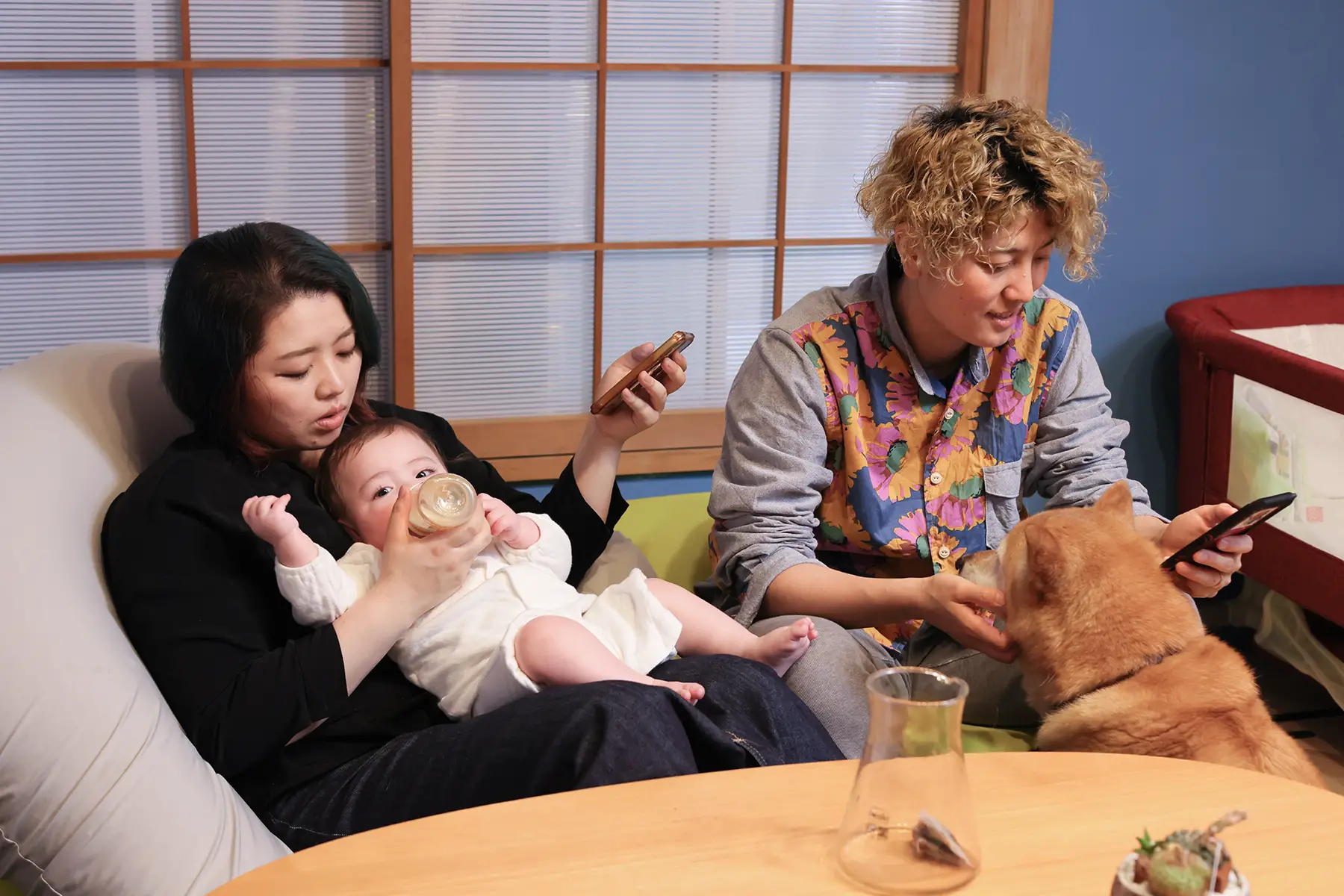
If you need help and support, there are several resources that offer guidance. For example, you can call the Proud Life helpline (0120-51-9181) or the Yorisoi Hotline (0120-279-338 or 0120-279-226). Other places of note:
- Freedom (Osaka)
- Friends and Family of LGBT
- Lawyers for LGBT & Allies Network
- Niji-Iro Kazoku (Rainbow Family) for LGBTQ+ parents
- OCCUR for HIV/AIDS support: 03-3383-5556
- Queer and Women’s Resource Center (QWRC)
- Stonewall Japan
Mental health and substance abuse helplines in Japan
Japanese mental health services
If you’re struggling with mental health issues in Japan, you’re generally recommended to consult your primary care doctor first. They can prescribe medication or refer you to a suitable specialist.
However, if you are in an immediate mental health crisis, you can call the TELL Lifeline at 0800-300-8355. Alternatively, you can reach out to:
- Ibasho Chat
- Befrienders International: 03-5286-9090
- BI Suicide Prevention Center (Osaka): 06-6260-4343
- SORA Counseling
Services that help with alcohol and drug abuse
Alcohol is deeply ingrained into daily life in Japan. Illegal drug use, on the other hand, is highly taboo, and drug users are shunned from society. As such, the country has very few services that offer help or counseling for substance issues:
- Alcoholics Anonymous
- AA Tokyo: 080-9194-7089
- Narcotics Anonymous
- Yorisoi support line: 0120-279-338 or 0120-279-226
Emergency number for road and traffic accidents in Japan
If you are involved in a traffic accident in Japan, you should stop your car, turn on your hazard lights, display your warning triangle, and call 110. If there are injuries, first contact 119 for an ambulance before calling the police.

After the police have issued their report, you can call your insurance provider. You can then either wait for the replacement car or drive home and deal with the damage once they’ve given the all-clear.
The Japanese Automobile Federation is one of the most popular roadside assistance services in Japan. It can be worth becoming a member if you have a car and drive regularly. In an emergency, you can contact them at 0570-00-8139 or #8139.
Who to call in a property or housing emergency
Lost or stolen property in Japan
Losing your things can be frustrating, but doing so in a country where you might not speak the local language can be especially difficult. When you lose valuables – or these are stolen – the best is to call the police’s Lost and Found unit (0570-550-142) or visit the local police station to file a report.
If the item is an official document, make sure to contact the relevant authorities as well. For example:
- Bank or credit cards: call your bank or credit card provider directly to report lost or stolen cards
- Jewelry: contact the police and your insurance company, if the pieces are insured
- Passports or ID: visit or call the nearest embassy or consulate of your country of citizenship
Fraud prevention and reporting
You can report fraud to the Japan Anti-Fraud Organization (JAFO) using their online form. If you are a business owner, you can have your company verified (i.e., confirming no fraud allegations, charges, investigations, or tax evasions) by the Japan Company Trust Organization (JCTO).
Utilities and telecom services in Japan
Housing emergencies can happen and often require urgent attention. In each case, you will likely need to contact the company that provides the particular service to your home. For example, call your electricity provider for an electrical issue or power outage.

Each company will have its own emergency hotline, which you can typically find listed on your utility bill. For instance:
- Osaka Gas Network: different numbers for different area codes
- Tokyo Gas Network: 0570-002299 or 03-6735-8899
- KEPCO (Kansai): 0800-777-8810
- TEPCO (Tokyo): 01-2099-5007
How to call homelessness services in Japan
Because there are comparatively few unhoused people in Japan, finding homeless services in the country can be a bit tricky. However, there are some local services within each city that can offer support, such as:
- The Big Issue Japan Foundation
- Homedoor
- Sanyu-Kai
- Moyai
- Gohan Plus (Tokyo)
- Assistance for Homeless People (Osaka)
People requiring food assistance can get in touch with their local Food Bank.
How to contact the Japanese animal services
If you find someone’s pet, you should take it to a veterinarian. They can see if the animal has any chip or identification and search the databases if so.
You can report animal abuse to the Japan Animal Welfare Society (JAWS) at 03-6455-7730. If the abuse is ongoing or urgent, call 110 to contact the police. Other animal welfare organizations operating in the country:
Help for foreign nationals in Japan
Japan is a popular tourist destination, and the country has a special support line for tourists in need of help. You can reach them at 050-3816-2787 (available in Chinese, English, and Korean). Of course, when you’ve an emergency, you must call 110 for the police and 118 for the ambulance or fire services.
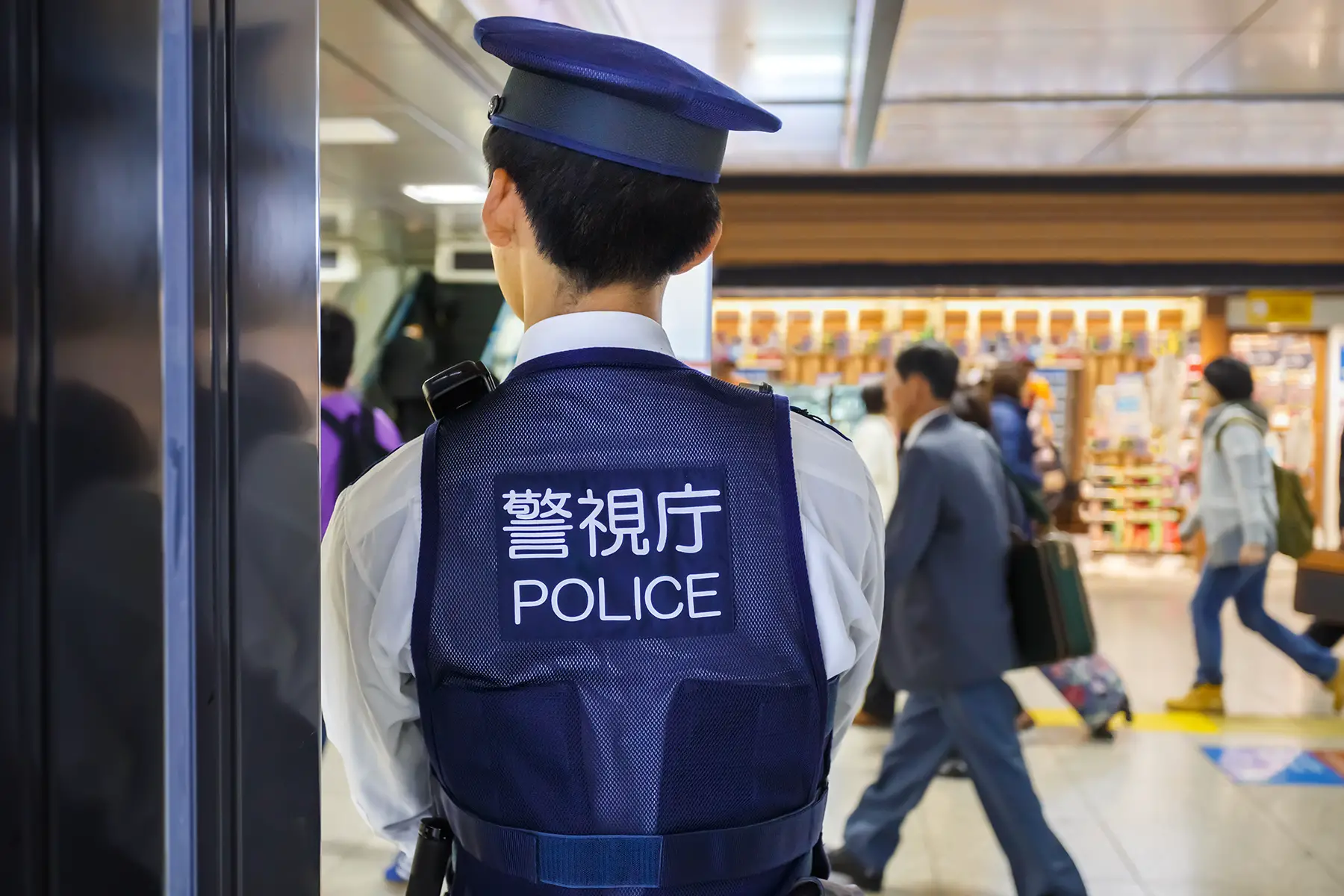
If you need consular or diplomatic help, most embassies and consulates are located in Tokyo and other major cities throughout Japan. For a complete list of embassies, consult EmbassyPages. You can also visit the website of the Ministry of Foreign Affairs of Japan (MOFA).
What should you do in an emergency in Japan?
When you call the emergency services, the operator will customarily answer in Japanese. However, English-speaking operators are available on request, as are those of other languages. When calling 110 or any other emergency number in Japan, make sure to clearly state:
- Your name
- The location where help is necessary
- The situation, and whether it’s still happening
- How many people require help
- Whether there are weapons or dangerous substances involved
Other tips and things to keep in mind:
- Ensure that you and other people are out of harm’s way
- Don’t forget the security code for your parking garage or apartment building
- Never hang up until you are told to do so
- If you have medical problems or regularly take prescription drugs, know how to say their names in Japanese
- If you have children, know their exact ages and weight in case you need to call an anti-poison center or administer medication
Emergency terms and phrases in Japan
Because not everyone in Japan speaks English, it’s useful to know some words and phrases in Japanese:
| English | Japanese | Pronunciation |
| Help! | 助けて! | Tasukete! |
| Help me | 助けてください | Tasukete kudasai |
| I can’t breathe | 息ができません | Iki ga dekimasen |
| Severely) allergic | 重度の)アレルギーです | Jūdo no arerugī desu |
| Accident | 事故 | Jiko |
| Fire | 火事 | Kaji |
| Murder | 殺人 | Satsujin |
| Emergency | 緊急事態 | Kinkyū jitai |
| Ambulance | 救急車 | Kyūkyūsha |
| Doctor | 医者 | Isha |
| Hospital | 病院 | Byōin |
| Police | 警察 | Keisatsu |
| Call 110/119 | 110/119番に電話して | Hyaku-tō-ban ni denwa shite (=110) Hyaku-jū-kyū-ban ni denwa shite (=119) |
| I want a lawyer | 弁護士を呼んでください | Bengoshi o yonde kudasai |
| I’m innocent | 私は無実です | Watashi wa mujitsu desu |
Useful resources
- Ministry of Internal Affairs and Communications – official government website of the ministry responsible for most rescue services in Japan
- Ministry of Foreign Affairs of Japan – official government website with more information on foreign embassies in Japan
